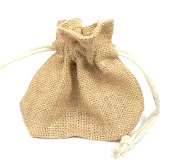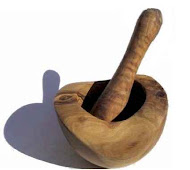trick for hot sex
ingredients:
vanilla incense
red candle
shed snakeskin
red ribbon or thread
one teaspoon of cloves
one teaspoon of red pepper flakes
one teaspoon of nutmeg
one teaspoon dirt
one teaspoon of ashes
light the incense,then the candle ( preferably dressed in attraction oil )
envision the hot passionate love you want, new exciting sex
open your snakeskin and put the ingredients in it, fold into little package
wrap it with the red ribbon/thread
hold above the candle while fantasizing about your new sexy love life
do for three days
letting the candle burn out on the third day
place the packet under your bed for one moon cycle
then bury it in the dirt.
~mrs. graves
Promotes romance, friendship; standard color for rituals to draw affections; a color of femininity, honor, service, brings friendly, lively conversation to the dinner table.
Red: Health, passion, love, fertility, strength, courage, will power; increases magnetism in rituals; draws Aries and Scorpio energy.
Cloves & Clove Oil
Bee Wilder
Description
Biological Name: Caryophyllus aromaticus, Syzygium aromaticum, Eugenia caryophyllata Myrtaceae)
Other Names: Clove, clovos, caryophyllus
Active Compounds: Clove oil is 60 to 90% eugenol, which is the source of its antifungal, anesthetic and antiseptic properties. Laboratory test have shown that eugenol exhibited marked antifungal activity. They also confirmed cloves' effectiveness in inhibiting food-borne pathogens as well as other bacteria. Eugenol is also found in cinnamon, sage and oregano. Capsaicin is also present in cloves, which is the active ingredient in cayenne pepper.
Primary Nutrients: Calcium, Magnesium, Phosphorus, Potassium, Sodium, Vitamins A, Vitamin B-complex and Vitamin C.
Preparation: The oil of clove is prepared by steam distillation.
The clove is an evergreen tree, called Eugenia arena, reaching a height of 15 to 30 feet tall. It is native to the Spice Islands and the Philippines but also grown in India, Sumatra, Jamaica, the West Indies, Brazil, and other tropical areas. The bark is pale yellowish gray in color and smooth. It has opposite ovate (egg-shaped) leaves 3-6 inches long. Its flowers, are red and white, bell-shaped, and grow in clusters. The flowers when gathered are at first of a reddish color, but on drying they assume a deep brown cast. The familiar clove used in the kitchen is the dried flower bud.
History
During the Han dynasty (207 B. C. to 220 A. D.) those who addressed the Chinese emperor were required to hold cloves in their mouths to mask bad breath. Traditional Chinese physicians have long used the herb to treat indigestion, diarrhea, hernia, and ringworm, as well as athlete's foot and other fungal infections and as a stimulant for the nerves. European doctors once breathed through clove-filled leather beaks to ward off the plague.
India's traditional Ayurvedic healers have used clove since ancient times to treat respiratory and digestive ailments. In tropical Asia cloves have been given to treat such diverse infections as malaria, cholera and tuberculosis, as well as scabies.
Clove first arrived in Europe around the 4th century A.D. as a highly coveted luxury. The medieval German herbalists used cloves as part of anti-gout mixture. Once clove became easily available in Europe, it was prized as a treatment for indigestion, flatulence, nausea, vomiting, and diarrhea. It was also used to treat cough, infertility, warts, worms, wounds, and toothache. European hospitals use clove to treat viral hepatitis, bacterial colitis, hypertension, thyroid dysfunction, and fatigue.
Early American Eclectic physicians used clove to treat digestive complaints and added it to bitter herb-medicine preparations to make them more palatable. They were also the first to extract clove oil from the herbal buds. They used it on the gums to relieve toothache.
Traditional uses in America include treating worms, viruses, candida, and various bacterial and protozoan infections. Clove is also used for toothaches, bad breath, dizziness, cough, earache, colitis, epilepsy, palsy, and digestive upsets, as a sleep-inducer, anti-inflammatory, blood-thinner, mental stimulant, etc.
Treatment Applications
To lift the spirits, blend clove oil with cinnamon, orange, nutmeg or vanilla oils. Using this warming blend in an evaporator will soon fill the room and relieve winter blues.
Athletics foot, nail fungus, & skin problems: Clove oil is just as effective as oil of oregano in treating these conditions. It can be applied directly to the skin or nails, but if skin is sensitive or broken it must be diluted with extra virgin olive oil or coconut oil.
Antioxidant: Clove essential oil is the powerful antioxidant of any fruit or herb — see the article at the end which compares antioxidant capabilities of a few essential oils.
Antiseptic Uses: Clove oil is the active ingredient in several mouthwashes and a number of over-the-counter toothache pain-relief preparations.
Candida, Parasites & Infection Fighter: Clove kills intestinal parasites and exhibits broad antimicrobial properties against fungi and bacteria supporting its traditional use as a treatment for diarrhea, intestinal worms, and other digestive ailments.
Cold Extremities: Clove oil stimulates circulation, and blood flow to the skin, making it very useful for people who have cold extremities.
Colds, Flu, Bronchitis, Fever & Whooping Cough: Cloves fights germs, viruses and bacteria, and it encourages the loosening of phlegm from the respiratory system. It also promotes sweating with fevers, colds, and flu, which is very healing. It is often used in remedies for whooping cough.
Depression: This powerful herb also has the ability to relieve depression.
Digestive Aid: Like many culinary spices, clove may help relax the smooth muscle lining of the digestive tract. A few drops of the oil in water will stop vomiting, and clove tea will relieve diarrhea, gas, bloating, intestinal spasms and nausea.
Eyes: Clove also helps prevent the breakdown in the retina of the eye, which slows down macular degeneration and aids vision in old age.
Fatigue & Drowsiness: Researchers found that sniffing the spicy aroma of cloves reduces drowsiness, irritability, and headaches. It stimulates the mind, increases memory recall, and relieves mental fatigue.
Headache: One drop of clove oil applied to the roof of the mouth can instantly relieve many headaches.
Insect Repellent: Clove, when used with citrus oils, is an effective insect repellent!
Pain: Long used in aromatherapy to relieve pain, it is also uplifting oil with a delightful scent. For general pain relief, add 3 drops of clove oil to 1 teaspoon of coconut oil or extra virgin olive oil. It is also used topically to relieve general aches and pains.
Toothache, oral hygiene: Dentists use clove oil as an oral anesthetic. They also use it to disinfect root canals. Clove oil will stop the pain of a toothache when dropped into a cavity. For temporary relief of toothache, dip a cotton swab in clove oil and apply it to the affected tooth and surrounding gum.
Adding a clove or two to a mug of tea can work miracles on a toothache, or a headache which can be caused by teeth problems (which includes stubborn wisdom teeth). According to a study at the University of Iowa, compounds in clove oil have shown "strong activity" against bacteria associated with plaque formation and gum disease and it treats mouth sores and ulcers, and sore gums.
Warts: A few drops of clove oil soaked into a band aid and applied to warts has been known to dissolve them — it should be freshly applied every day. It may take up to a month to totally dissolve it.
Dosage:
Tea: Use 1 teaspoon of powdered herb per cup of boiling water. Steep 10 to 20 minutes. Drink up to 3 cups a day. Only organic or certified organic herbs and spices should be used since all commercial sources are irradiated (zapped with radiation).
Oil: 1 drop of 100% clove oil 3 times per day, increased gradually up to 3 drops 3 times per day. NOW brand is excellent. Ask your health food store to order it if they do not have it in stock.
Cautions:
Clove oil is not recommended for pregnant or nursing mothers. Medicinal amounts of clove should not be given to children under age 2. For older children and people over 65, start with low-strength preparations and increase strength if necessary. Clove oil may be diluted in extra virgin olive oil and coconut oil. Those who are taking blood-thinner medications should not take clove oil because it, too, is a powerful blood-thinner. Doses above those recommended may cause stomach upset.
Antioxidant Activity of Clove Essential Oil
Many foods and substances contain antioxidants which absorb free radicals (toxins). Scientists at Tufts University have developed a scale for the U.S. Department of Agriculture called the ORAC (Oxygen Radical Absorption Capacity) test. The higher the ORAC score is, the more capable that particular food, spice or herb is of destroying free radicals (antioxidant).
Essential oils have the highest ORAC scores of any known substance. According to the Essential Oils Desk Reference, 2nd ED., they are as follows:
Essential Oil (botanical name) ORAC Score
Roman Chamomile (Chamaemelum nobile) 2,446
Juniper (Juniperus osteosperma) 2,517
Spearmint (Mentha spicata) 5,398
Lemongrass (Cymbopogen flexuosus) 17,765
Eucalyptus (Eucalyptus (Eucalyptus globulus) 24,157
Cinnamon Bark (Cinnamamum verum) 103,448
Mountain Savory (Satureja montana) 113,071
Oregano (Origanum compactum) 153,007
Thyme (Thymus vulgaris) 159,590
Clove (Syzygium aromaticum) 10,786,875
These essential oils are even more potent than fruits which are promoted as powerful antioxidants, such as blueberries, ORAC Score 2,400. The last six oils on this chart are even more powerful than Chinese wolfberries, ORAC score 23,300.
Clove is the champion of all, with an ORAC score over 10 million!! That means a drop of Clove Oil contains 400 times more antioxidants per unit volume than wolfberries, the most powerful of all known fruits, and a 15ml bottle of Clove Oil has the antioxidant capacity of 40 quarts of blueberries. The benefits of breathing, applying and taking clove essential oil internally are far greater than you can imagine.
ABOUT US ~
this journal is our foray into the deeply spiritual, magical and healing traditions of the new world african. The new world african is a mixture of many cultures, and so are these traditions.our memories are ephemeral, and this is our humble effort to preserve, through active practice, our ancestral heritage. some posts on this blog are from the yahoo group which is now closed after seven years on the web~ hoodoo,voodoo,conjure & rootwork. we offer the traditional southern root style divination & fortune telling here as well as charms,tricks,spells and formulas!

PRODUCTS~
- •WE OFFER solutions to most any concerns you may have and all charms,tricks,spells and formulas are done by hand and made to order for you. therefore,if you have a specific request,it can be made to your desires. products are beautifully packaged and sent to you ready to work.
Papa Ce on BlogTalk
Followers
ARCHIVES
COME ON IN MY KITCHEN~ real roots & hoodoo © 2008. Blog design by Randomness!







